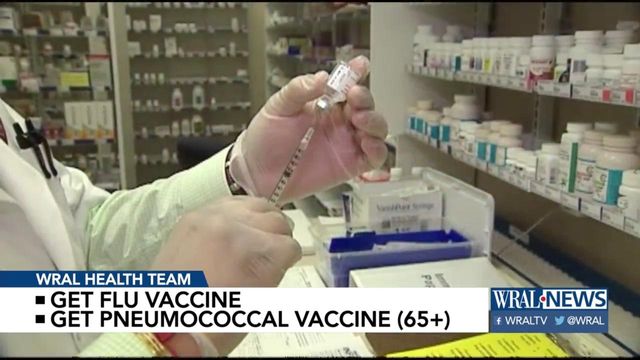Mask: Diabetes, abnormal blood pressure increase risk of pneumonia in elderly
Pneumonia can be a serious threat to health and life, especially among the elderly, but easy changes can help prevent the infection.
Posted — UpdatedPneumonia can be a serious threat to health and life, especially among the elderly, but easy changes can help prevent the infection.
Pneumonia is an infection of the air sacs of one or both lungs. These air sacs may be filled with fluid and pus which can be caused by a variety of organisms, including viruses, bacteria and fungus.
As people get past the age of 50, their immunities begin to decline.
Major risk factors for pneumonia include smoking, diabetes, alcohol abuse, heart disease, cancer and neurological diseases, such as Parkinson's disease, which ails the 92-year-old former President George H.W. Bush.
Doctors always hospitalize elderly patients with pneumonia because it can be so deadly.
When patients like Bush are admitted to the hospital, they can be quite sick. They frequently need breathing assistance, which can include the use of a mechanical respirator. Antibiotics and anti-viral medications are used, too.
The goal of the treatment is to prevent spread to the blood stream where sepsis can occur, which can be fatal.
Pneumococcal bacteria is the most common cause of pneumonia in the elderly, and 90 percent of all pneumonia deaths occur in individuals over the age of 65.
Pneumonia that stems from the flu is also a serious threat and can often lead to death in older adults.
Pneumonia symptoms include fever, cough, shortness of breath, chest pain, weakness and mental confusion.
Doctors can diagnose it with a physical exam, chest X-ray and blood work.
There are steps people can take to help avoid pneumonia, though. Doctors recommend getting vaccinated for both the flu and pneumonia, which should be given at age 65 and younger for people with underlying medical problems, such as diabetes and abnormal blood pressure.
Also, don't smoke. Smoking damages the natural defenses against bacteria and viruses that cause pneumonia.
Malnutrition is also a risk factor for pneumonia in older patients. Aspiration pneumonia occurs when you inhale saliva, food, drink or vomit.
Every effort should be made to make sure to keep the airway clear. Make sure elderly people are sitting up and exercising. It can also help to practice deep breathing exercises.
Doctors also recommend warding off colds and the flu by washing hands frequently, drinking plenty of fluids, disinfecting shared surfaces and avoiding excessive contact with other people in public places.
• Credits
Copyright 2024 by Capitol Broadcasting Company. All rights reserved. This material may not be published, broadcast, rewritten or redistributed.





